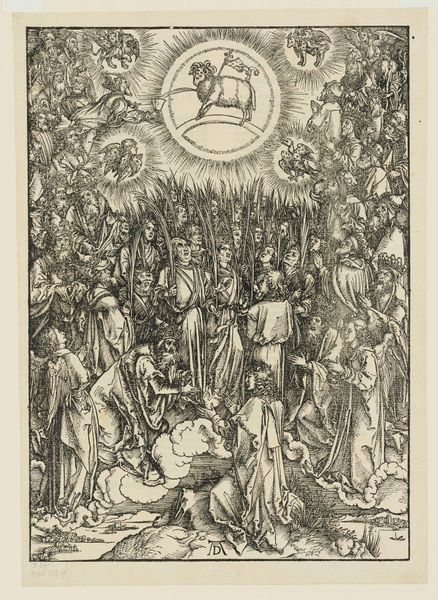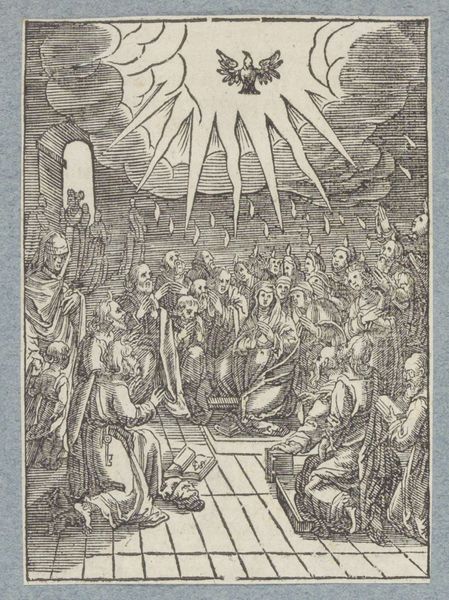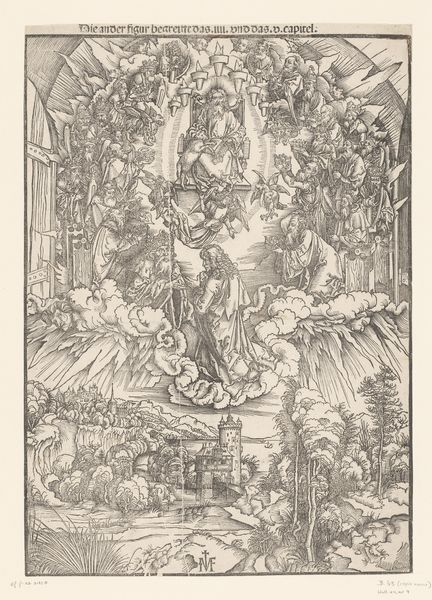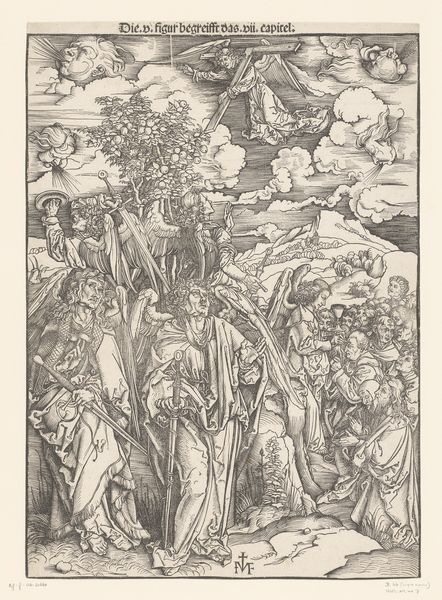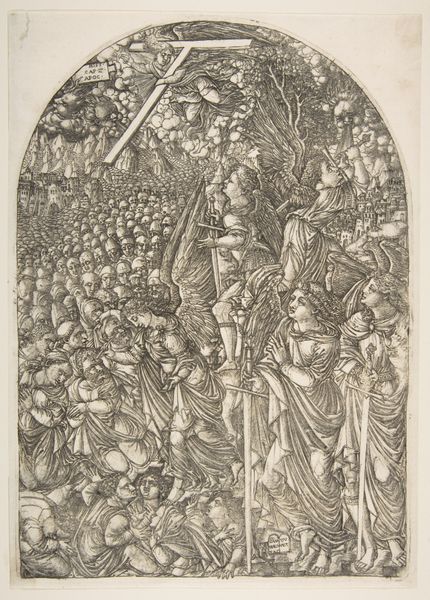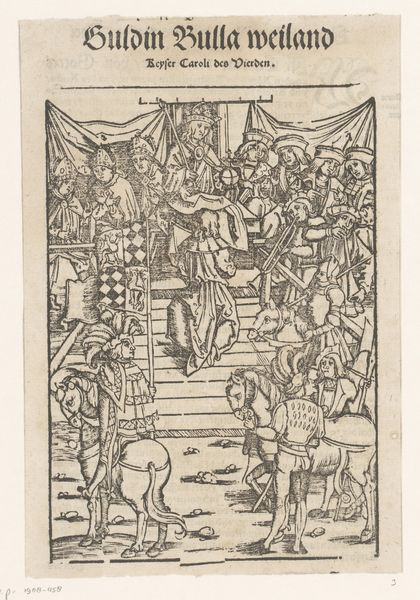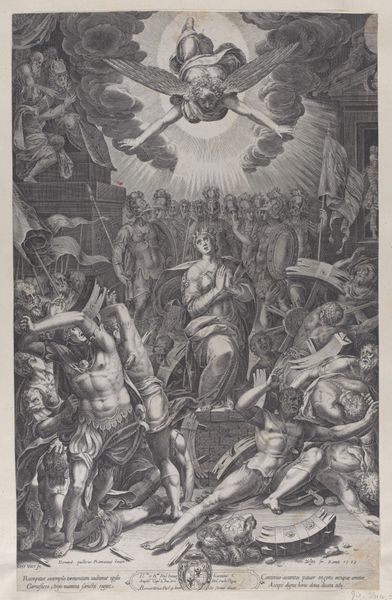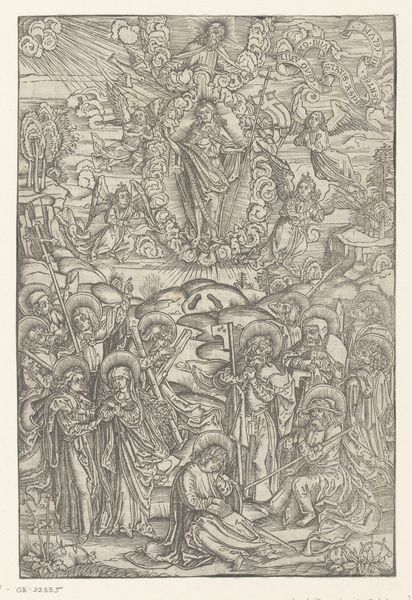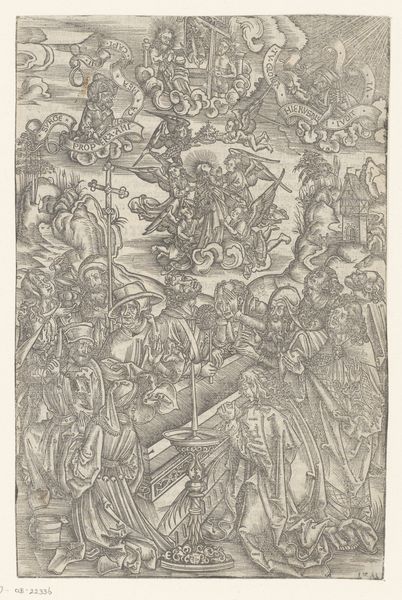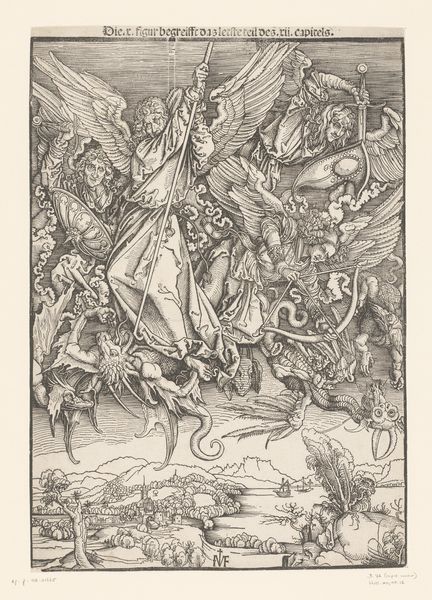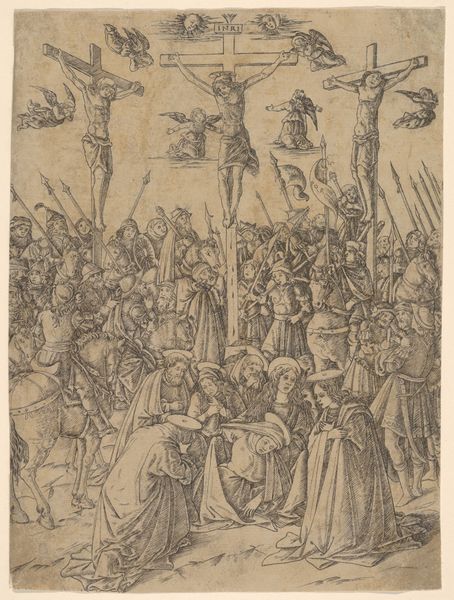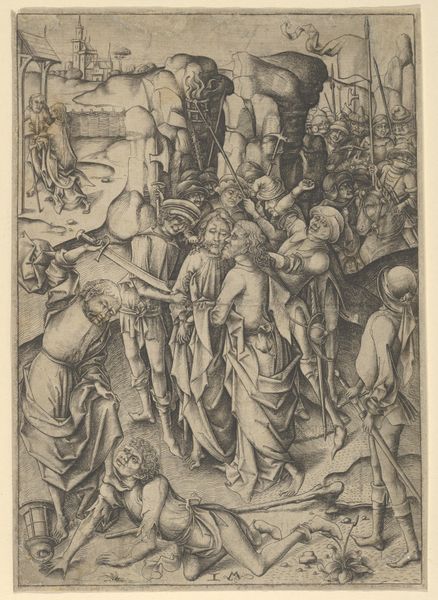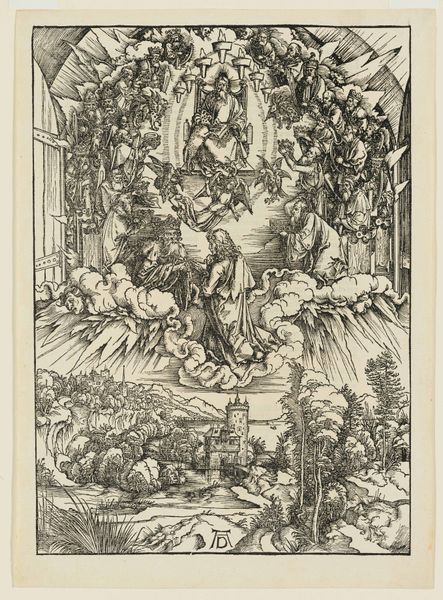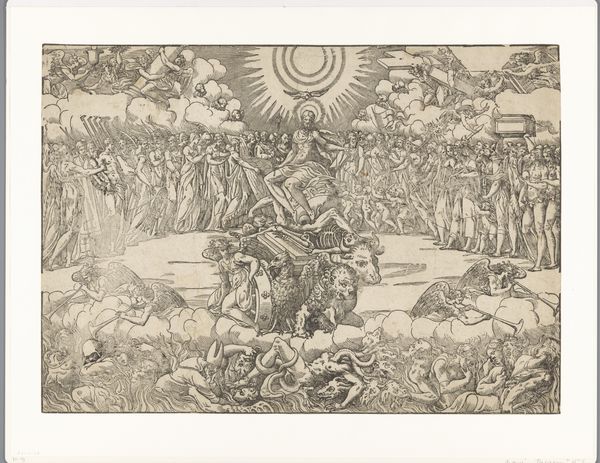
graphic-art, print, woodcut, engraving
#
graphic-art
#
narrative-art
# print
#
figuration
#
woodcut
#
line
#
history-painting
#
northern-renaissance
#
engraving
Dimensions: height 390 mm, width 280 mm
Copyright: Rijks Museum: Open Domain
Ieronimus Greff von Frankfurt created this print, “Adoration of the Lamb,” around 1500. Dominating the composition is the symbol of the Lamb, a profound emblem of Christ's sacrifice. This imagery emerges from the Book of Revelation, where the Lamb represents innocence and redemption. The palm branches held by the adoring figures resonate with ancient traditions of honoring deities and victors. We see echoes of this in classical depictions of triumphs and processions, where palm fronds signified victory and eternal life. Yet, here, the symbol transforms; it becomes integrated into the Christian narrative of spiritual triumph over death. Consider, too, how the act of adoration—kneeling, gazing upwards—is a gesture that crosses cultures. From the Pharaohs to emperors, rulers have used this symbolic language of the body to demonstrate reverence, a silent dialogue between the temporal and the divine. This powerful symbol continues to resurface, evolve, and take on new meanings in different historical contexts.
Comments
No comments
Be the first to comment and join the conversation on the ultimate creative platform.
